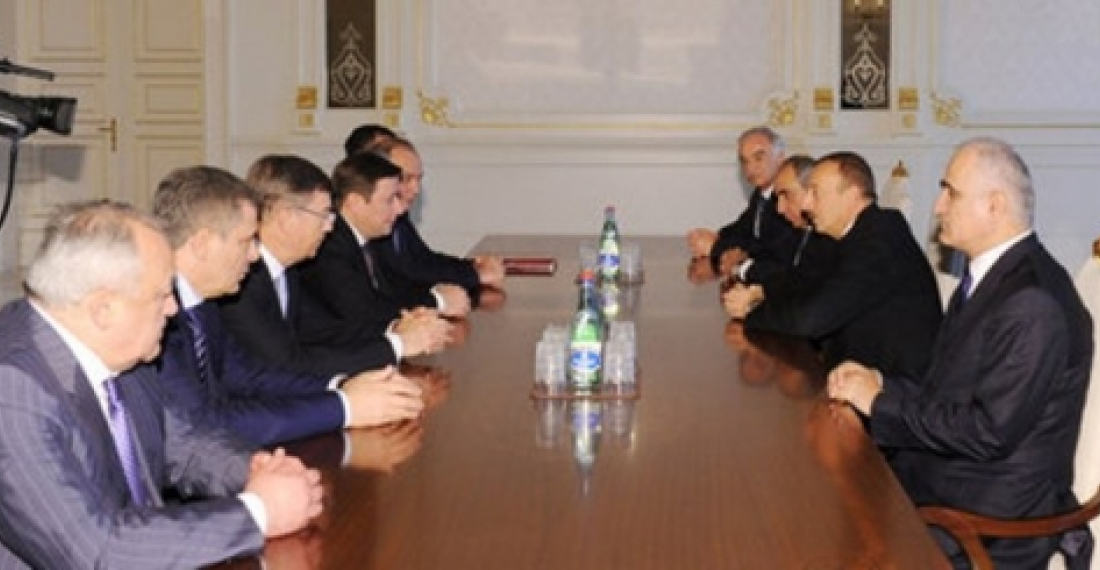Leaders of several Republics of the North Caucasus vistied Baku this week accompanied by the Plenipotentiary Envoy of the President of Russia to the North Caucasus, Alexander Khloponin, who also holds the rank of Deputy Prime Minister in the Russian government.
The visit was unprecedented in many respects. The leaders of the North Caucasus Republics rarely travel together, except for meetings with the Russian leadership. Moscow also does not usually encourage contacts between its North Caucasus Republics and the outside world, although it does tolerate some trade relations.
The North Caucasus leaders were chaperoned on their visit to Baku by Russia's Deputy Prime Minister and Plenipotentiary Presidential Envoy to the North Caucasus Alexander Khloponin. Khloponin has been Russia's modernising face in the North Caucasus. He was brought in to provide an alternative to repressive security measures as a way of combatting the insurgency by radical Islamists which has created havoc in the region over the last decade. Khloponin has set in motion an ambitious plan for job-creation and economic revival, but this plan has been seriously jeopardised by incidents of terrorist attacks, some against key economic objects.
The visitors to Baku included the President of Ingushetia, Yunus-Bek Yevkurov, the President of Kabardino-Balkaria, Arsen Kanokov, the President of North Ossetia-Alania, Taymuraz Mamsurov, and the President of Dagestan, Magomedsalam Magomedov. Absent was the Chechen President Kadyrov who is known to have bad personal relations with Khloponin and who looks at his initatives with suspicion.
It is likely that the North Caucasus leaders are seeking investment from Azerbaijan in areas such as tourism.
President Aliev met the delegation and cautiously welcomed the visit saying that it opened "good opportunities for the discussion of future co-operation".
As if to emphasise the risks for both Russia and Azerbaijan of this kind of co-operation the visit of the North Caucasus leaders was preceded by another unprecedented visit - that of the Russian Interior Minister, accompanied by security officials from the Russian Federation and the North Caucasus Republics, for meetings with his Azerbaijani couterpart. It is clear that for Russia, where the North Caucasus is concerned, the stick and carrot must go together.
Report compiled by the commonspace.eu newsroom.
photo: President Aliev meeting Deputy prime Minister Khloponijn and the leaders of Ingushetia, North Ossetia, Daghestan and Kabardino Balkaria in Baku on 4 October 2011 (picture courtesy of the Press Service of the president of Azerbaijan







